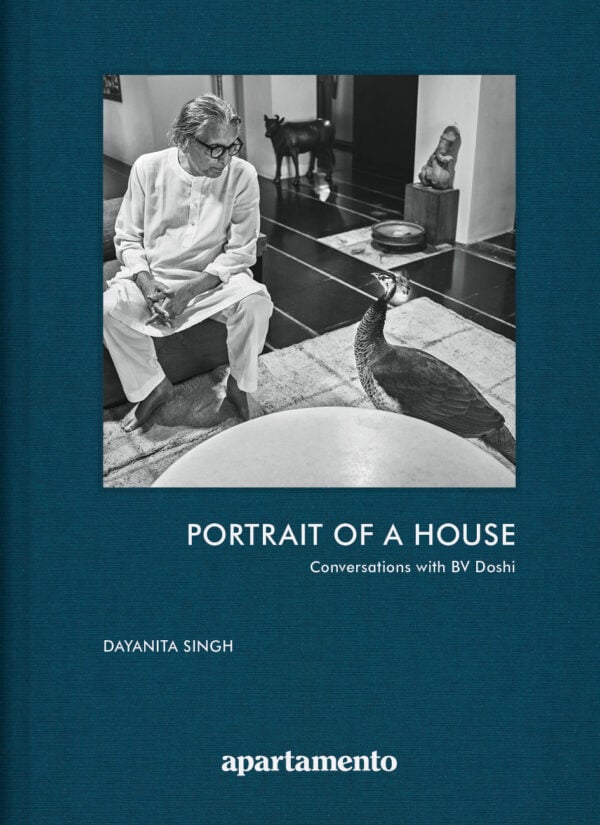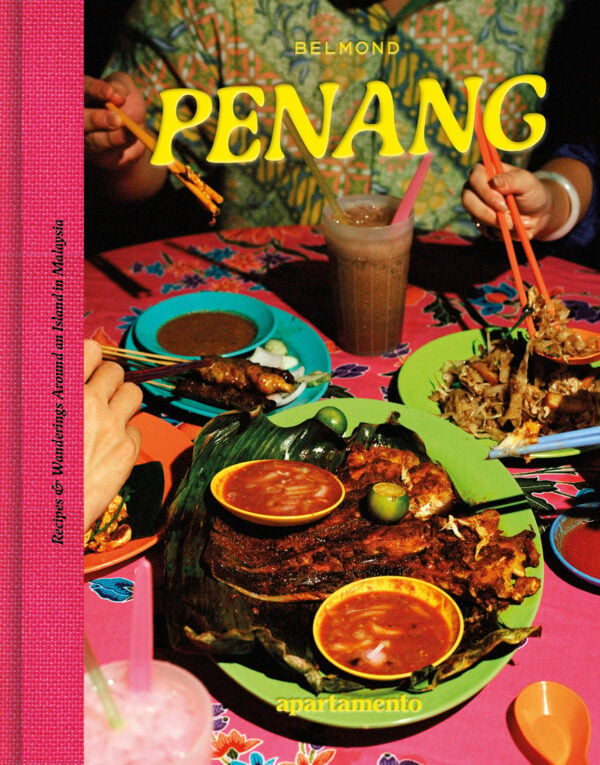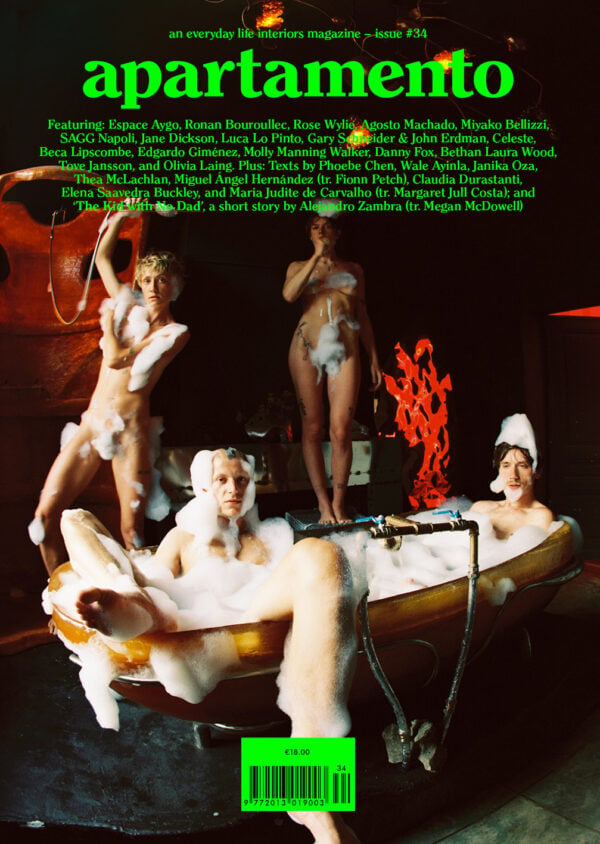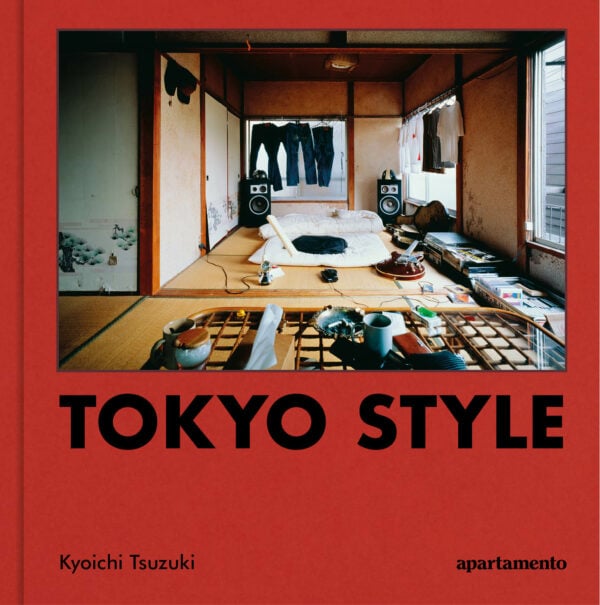Luo Yang
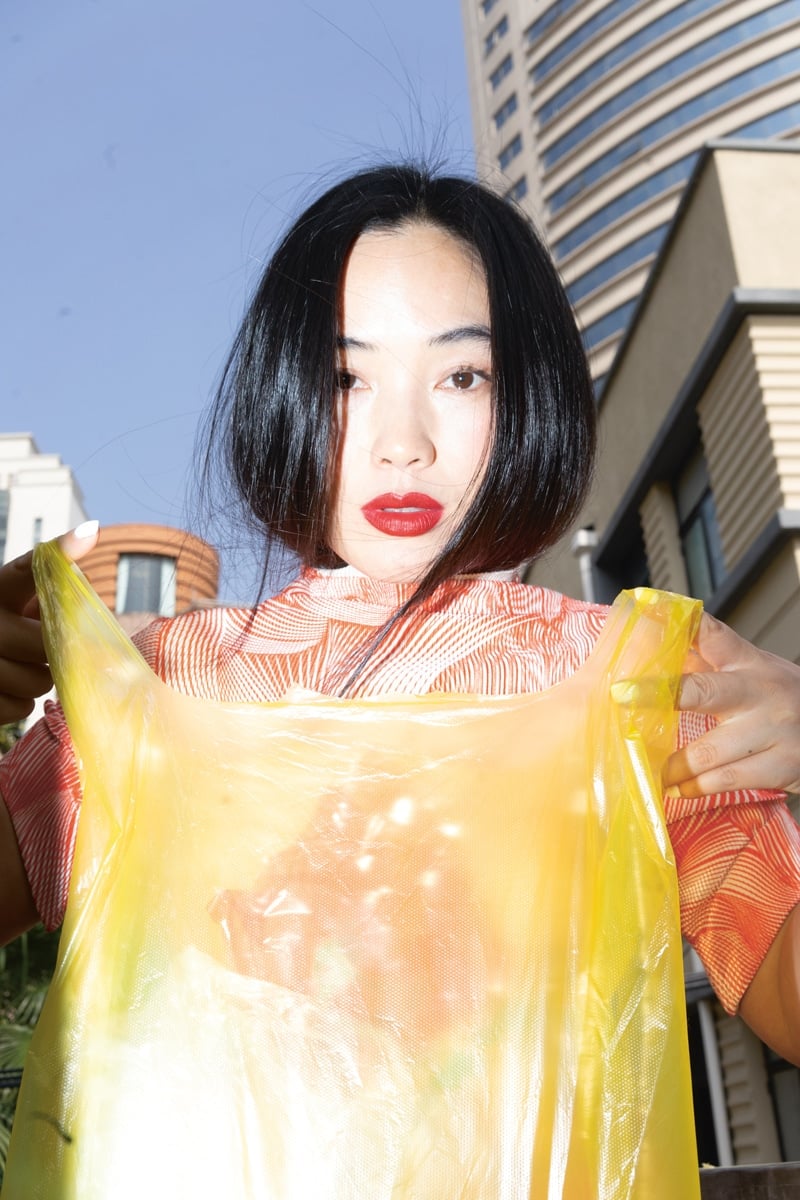
Shanghai: Since 2008, Luo Yang has led her audience into the homes of the many girls who’ve inhabited her personal project of the same title. These rooms, located all across China, have witnessed these girls’ lives, moments of their love and growth. But when we try to distinguish the details of their rooms, we find that Luo has a knack of selectively focusing on her girls, obscuring the interior decorations that become a simple background. After I’ve finished this interview, I realise that Luo, a self-proclaimed minimalist, has already left us clues in these images as to her own life and nature.
Although moving is a common occurrence for young creatives living in Beijing and Shanghai, for many people the meaning of home has become even more complicated following the Covid-19 outbreak. Luo was born in a small city in the province of Liaoning, in Northeast China, but moved to Beijing after the 2008 Olympics and spent her underground youth in this cultural capital. With rising environmental pollution and cultural policy changes, Luo decamped from Beijing to Shanghai in early 2017 and began her life in this elegant but highly competitive city. After the sudden start of the pandemic though, Luo travelled to Tibet, Yunnan, and Hainan successively, to rethink the relationship between work, life, and ideals.
In this interview, which we carried out over the phone, we left behind the confines of our rooms, our homes, and lifted our conversation from Luo’s childhood to include her plans for the future. From a childhood spent in the natural countryside of her native province to the days she now spends working in the hustle of the city, Luo’s life experience also reflects the life chances of many creative youths who’ve grown up around the millennium in China. Confident, fearless, and yearning for freedom, home is far from Luo’s focus, but it is the starting point.
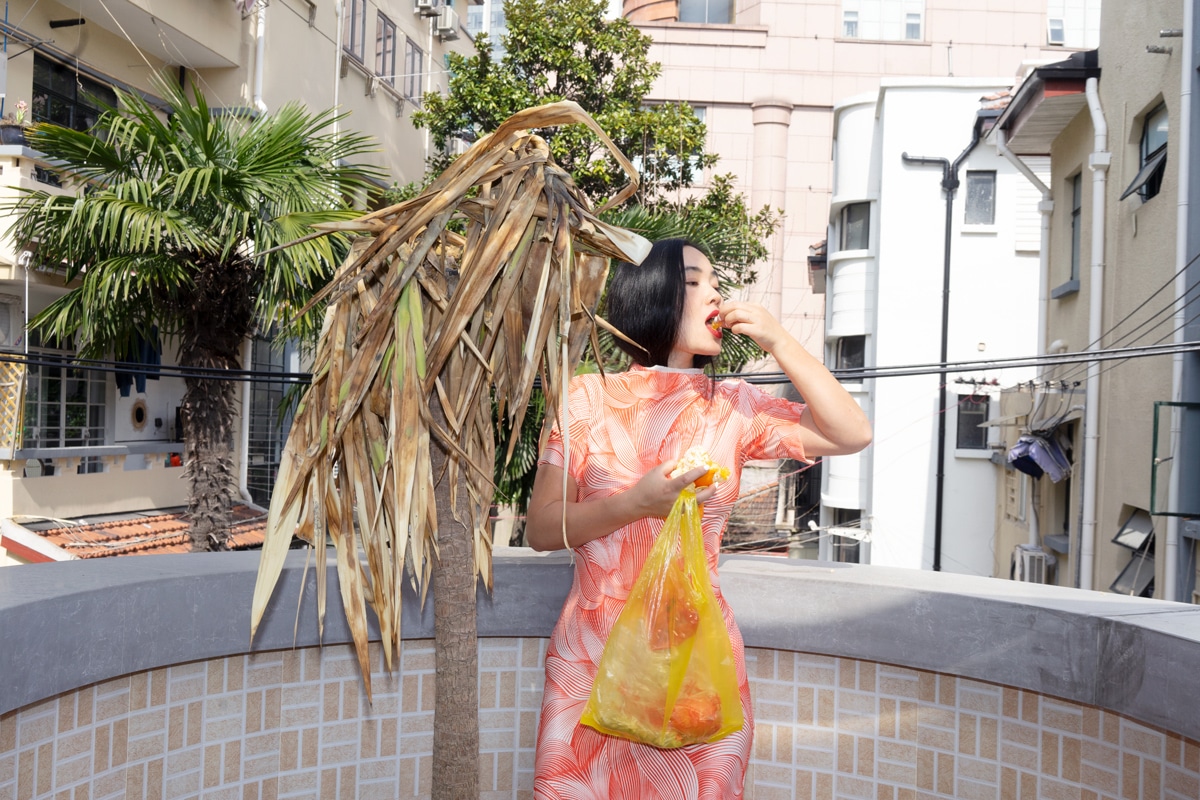
The recent exhibition with Japanese composer Ryuichi Sakamoto at M WOODS museum in Beijing is quite a big thing for creatives. Music has always played an essential role in our lives. What music have you been listening to recently?
When I was young, I liked to listen to more underground music, like rock ‘n’ roll or electronic music, for example. Now I feel that I’m at a stage in my life—maybe I’m not interested in music that makes people fall into a state of deep emotion. Recently, I prefer to listen to music that makes me feel more relaxed, such as yoga or Buddhist music. Even though I’m not a Buddhist, I try to understand and look for music with healing power. I also like the soundtrack by Joe Hisaishi in Hayao Miyazaki’s movies. For example, the song ‘Summer’ from the film Kikujiro makes me feel quite relaxed as well.
Which venues do you recommend in Shanghai?
There are many clubs in Shanghai. A lot of my friends go to ALL, 44KW, and Potent. I think people in Shanghai like to dance in the dark and in relatively underground spaces, but I think I might have passed that stage in life. Anyway, Shanghai has a really fantastic side.
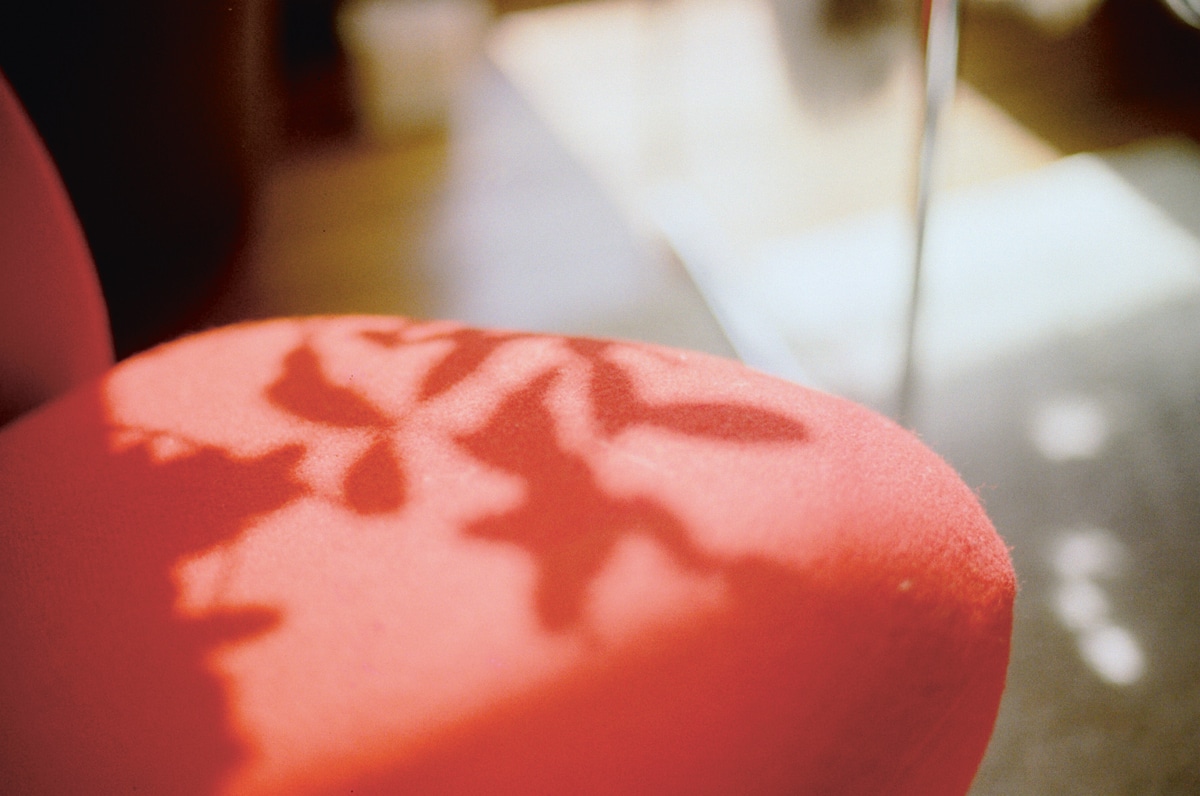
Can you describe life during your childhood?
I was lucky to live in a place close to nature when I was young. I was born in Tieling, a small city in Liaoning province, located in Northeast China. I spent my childhood in my grandfather’s small village, and I think it’s a fortunate thing for children to live in such places. I’ve been exposed to mountains, lakes, and natural places since I was a child, and I think the happiest childhoods are in that state. Although my family has moved to the city now, I occasionally go back to the town when there’s lots of pressure or I’m feeling unhappy. It’s where I found the simplest state of life during my childhood.
Is there anything in your hometown that hasn’t changed since that time?
Things haven’t changed too much, but there are also many changes. The river in my hometown is still there, but the vegetation has been reduced because the town is expanding up the mountain, which has also caused the river to dry up. Same thing with my grandfather’s house; its orchard is still there, but the house has undergone renovations, and the surrounding environment continues to change with new construction from the city.
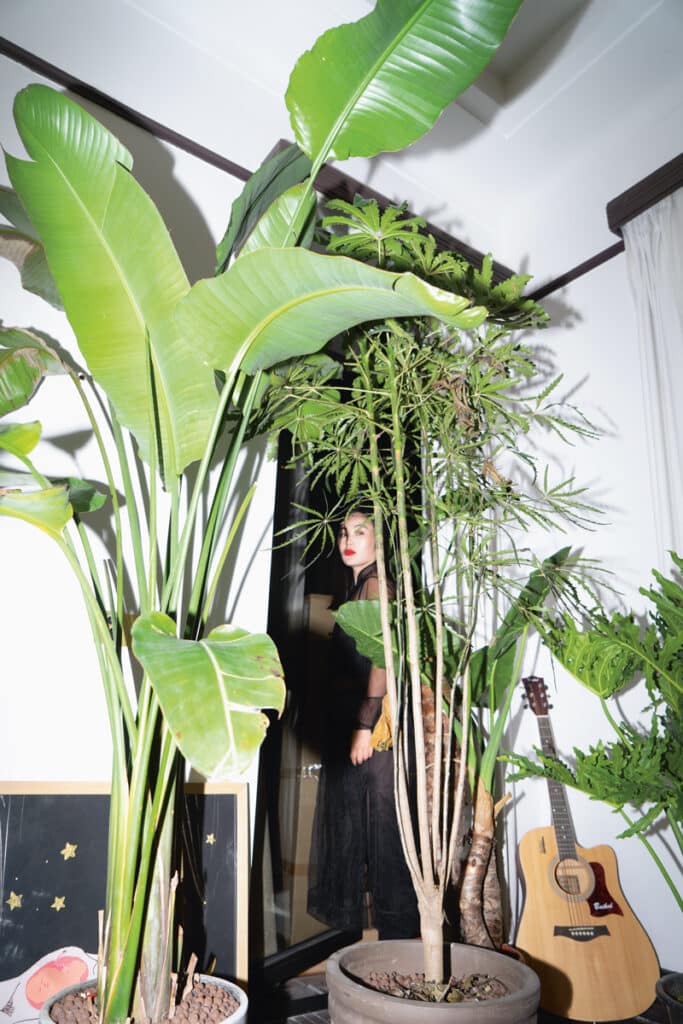
Do you have any memorable toys from your childhood?
When I was little, my family bought a few toys for me, but I preferred to make toys by myself. I think I’ve been an inventive person since I was young. I also made many beautiful clothes for my dolls and jewellery for my sister and friends. My mother used to be in the fashion business and really loves to dress up. She brought home many fashion calendars and hung them up on the walls. I think she’s influenced me profoundly in that sense; if I feel that clothes don’t fit me, I try to alter them. I spent most of my childhood in the wild, too. In winter, I would go tobogganing with my sister, slide down the mountain, swim by the river, and catch frogs in the rice fields. I think kids should grow up in nature.
When did you go to Beijing?
I studied graphic design at the Luxun Academy of Fine Arts, but I’ve hardly done any design work since graduating. I started taking pictures very early on in my college life and posted them on the internet. Then some people followed me on Douban and Fotoyard at the same time. Around 2008, the editor of an underground cultural magazine in Beijing named +0086 contacted me and invited me to shoot some stories related to art and musicians for the magazine. After that, I went to Beijing from Shenyang once a month, and I spent a lot of time in Beijing when I was about to graduate.
How would you describe this city?
Beijing is the centre of culture in China. Although Beijing’s air condition was not satisfying 10 years ago, I could still bear it at that age. There are many different underground music scenes, and I saw performances every week or so; there are good exhibitions, many interesting people, and I think the most interesting people were in Beijing around that time. I moved to the city several times and finally lived near Wudaoying, very close to Gulou East Street. It was very convenient to walk to gigs and go to friends’ houses. I can even say that I spent my youth in Beijing. My memories of drinking beer and eating skewers by the hutong in summer are very fresh.
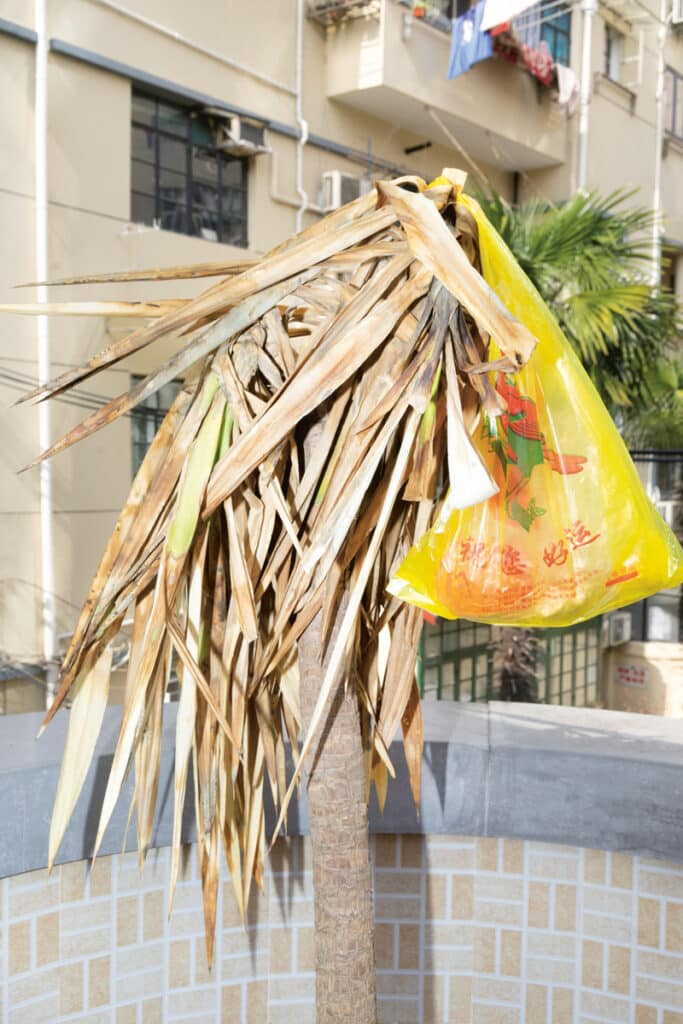
Why and when did you leave Beijing and decide to go to Shanghai?
I think it had something to do with the general environment and my personal choices. In 2016 I left Beijing for a break and stayed in Shanghai for two months. At the end of 2016 and in early 2017, Beijing’s air pollution became severe, and I maybe reached a stage in my life where I needed a breakthrough. After enjoying life in Beijing for a few years, a German agency called Mo-Industries started representing my work around 2016. I felt like I was riding a roller coaster that year. I had tons of exhibitions, interviews, and my work was exposed in different places. But my life didn’t change in terms of income or other aspects. I felt that I was at two extremes, and I felt a sense of emptiness. My mother was worried about me, too.
Beijing’s cultural policy changed around 2016, and living prices have soared. I think that was a turning point for many creative people leaving the city. Why did Shanghai attract you the most?
I didn’t come to Shanghai directly. I travelled to Xinjiang, Yunnan, Qinghai, and Sichuan provinces in 2017 for half a year. I realised that the natural environment was pleasing, the culture was attractive, the people living there were friendly. I found that I could be relieved from Beijing’s terrible environment at once, and life could be perfect in an instant. I think our surroundings shouldn’t restrict us. I adjusted myself in half a year. Later, I felt that I would never go back to Beijing and that I would move to Shanghai. I happened to encounter a change in my career in Shanghai; it’s the centre of fashion and commerce, and because I’d accumulated many exhibition resources and gained attention earlier on, I started doing some fashion work along with my personal project in Shanghai. So far, the living environment here is more comfortable than in Beijing, but I still don’t feel a sense of belonging. People are not so close to each other, and they’re not so honest and lack the sense of power you have in Beijing.
Do you think that travel is an outlet for you to relax and find yourself?
I don’t think I travel for relaxation. If people live in cities, this in itself is something that violates human nature. We should be living with nature. I’m partly influenced by the conditions in which I lived as a child and partly by my observations of basic human needs, but I believe that after living in the city for a while, you need to experience nature to experience different cultures. I think I can find a more humane life in second- or third-tier or smaller cities, especially as these places are less developed. I felt people were closer to each other than in big cities, while I could see many things that were more wild, real, and powerful. China has a vast territory and abundant resources; I need to see and understand it through travel. I can also find inspiration for shooting at the same time; if you’re a photographer in a city and feel a lot of pressure, you’ll miss many natural things and won’t be able to shoot good work.
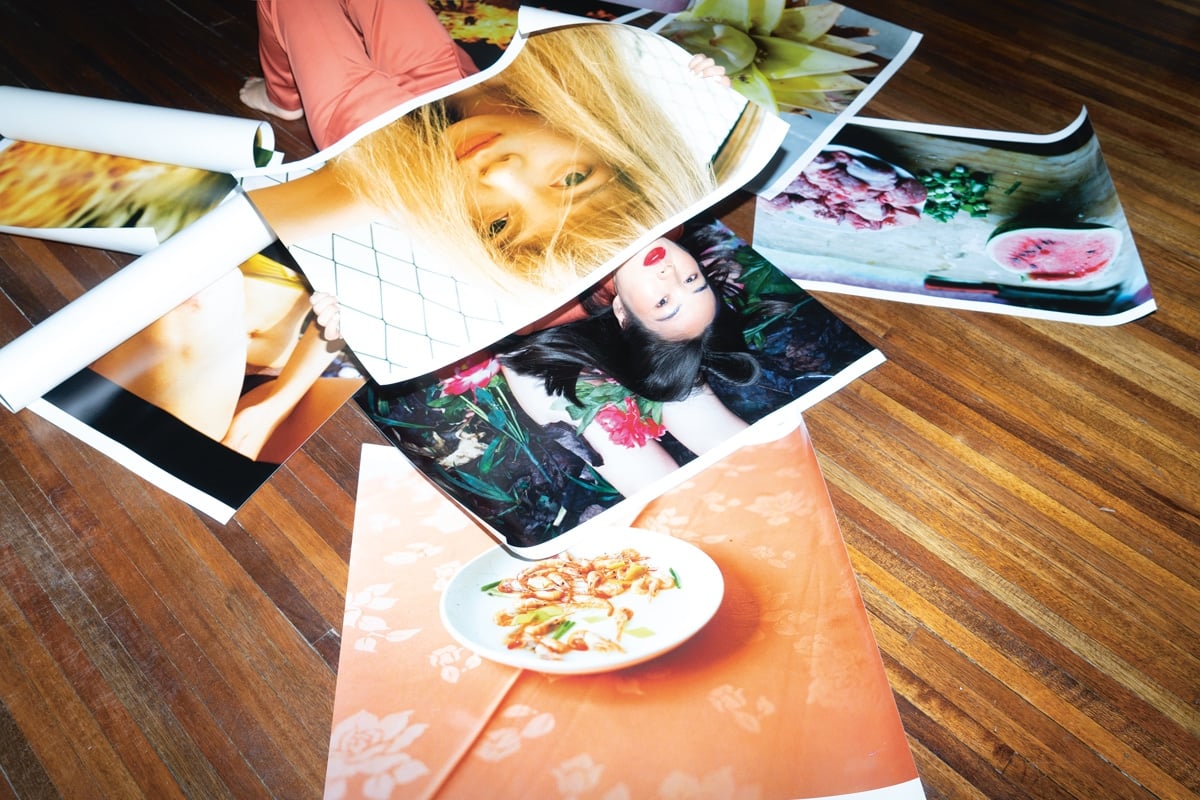
Did you go to many places after the Covid-19 outbreak?
I went on a hike to Sichuan’s Tibetan area and then went to Xishuangbanna and Sanya last year.
How do you quickly integrate into local cultures while travelling?
I think local friends are essential. Sometimes I also met up with friends who came to visit these places to meet interesting local people and enjoy the local way of life.
Tell us about your last trip to Sichuan’s Tibetan area.
I planned a week-long trip to Tibet with my three good friends. We found a local tour guide for the trip; he even had horses to carry food and luggage. Yading is a famous tourism destination located in the Sichuan Tibetan region. Although I expected to see many visitors there, we started to move away towards uninhabited areas. The landscape in Yading is similar to the Nordic scenery I’ve seen, and it’s stunning. However, our journey was challenging. We travelled in the rain and climbed many hills all the way up, and there was no mobile phone signal at all. We had to set up our tent or sleep in cowsheds, and we also had severe altitude sickness.
The trip was full of danger and the road was strenuous; we rode horses along cliffs in the rain, and I almost fell off twice. I became emotional several times during the trip, but I persisted and felt my own potential. I think this was an exceptional experience for me. Sometimes it’s vital to get out of the urban environment, or my comfort zone, to experience very extreme and very different things.
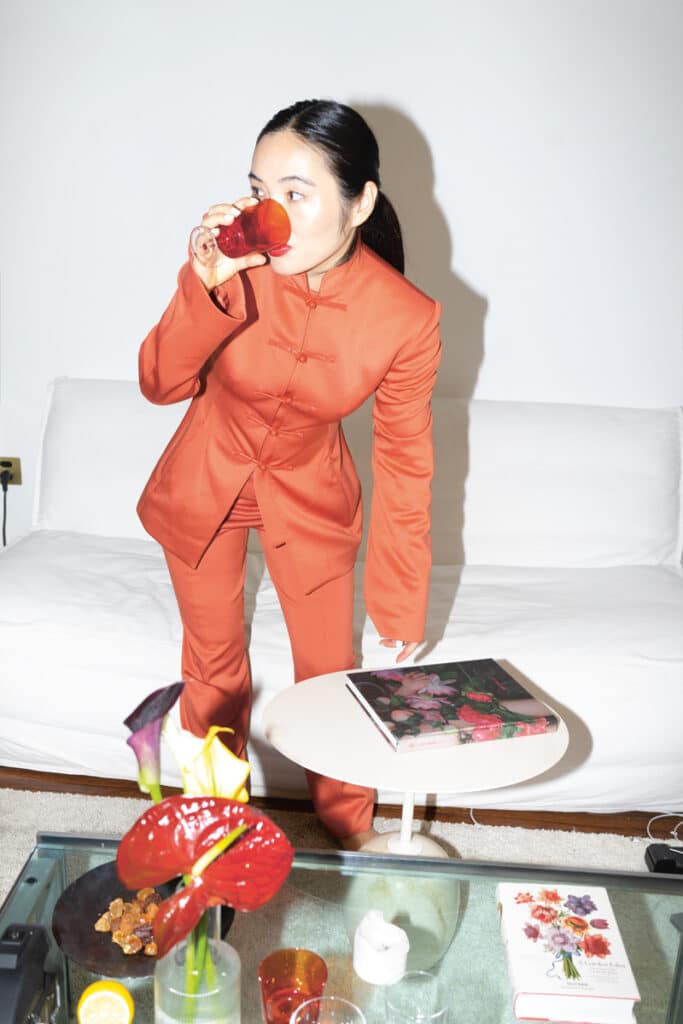
Do you embrace consumerism?
On the contrary, I think I’m a minimalist. I like to travel and don’t like to be bound by things. But I’m very picky about my living environment and need a comfortable, minimalist home. The room shouldn’t be too packed but it should be bright. I’m a pragmatist and don’t like fashionable things that will soon become obsolete. I buy items that can be used for a long time, such as tables and bookshelves, even if they’re expensive. I don’t have any dependence on material things, but if I think something can last a lifetime, it’s OK, even if it’s expensive.
Do you collect artwork?
Yes, but very little. I buy pieces that I like and have collected work by Si Wei, a member of Perk Collective, which was established in Shanghai around 2004. Si Wei used to be my roommate, and to begin with she was a costume designer. Later, when she was pregnant, she used cloth and thread to make a work related to her pregnancy. I’ve also collected photobooks by friends, such as No. 223, Ren Hang, Chen Zhe. I don’t think I’ll collect many things in future unless I think it’s precious. Freedom is fundamental to me.
What role does yoga play in your life, especially after the pandemic started?
Over the first few years of my career, my pace of life was very fast. I didn’t feel very well. The pandemic started in the spring of last year, and then I stayed in Bali for almost two months. I tried different types of exercise over the months, going to the gym and practising yoga. Exercise has become part of my life since last year. I can’t live without it because we know very well that it makes us feel good and appreciate ourselves. I stretch my body through yoga and treat it as a form of meditation. I want to focus on outdoor sports in the future and spending time with friends as much as possible.
Is this related to the peaceful lifestyle you’re pursuing at the moment?
Everyone needs to take their time to find what suits them best. At this point in my life, I choose yoga. You can practise it while travelling or at home, in your own time, and I feel more mentally focused.
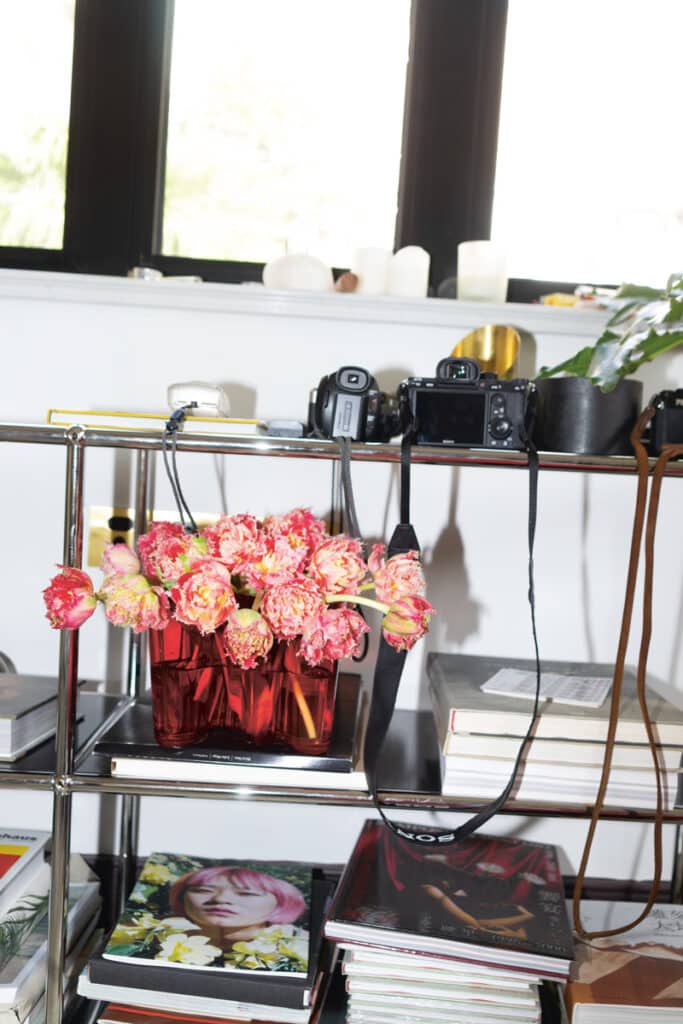
Do you think you’re the kind of photographer-artist who’s born with a good eye, or is it more related to ongoing hard work?
I’m a very emotional person, or someone with a strong perception of things. This comes from my natural character, but also my environment and life experiences. I grew up in a comparatively poor environment. If I wanted to see the world, I had to go to college in the big city; taking college entrance exams was the only way out. I come from an ordinary family, and that made puberty, which should be naïve and romantic, very depressing. My father passed away when I was in college, so there were many difficulties in life, and I feel that I have a lot of emotions to express. I have a lot of things struggling in my heart, and if you don’t want to be overthrown by life you have to go back and fight. Your acquired environment might give you this kind of vigour as well, so your feelings become stronger, and your explosiveness becomes stronger.
I’m relatively straightforward, and I hope to do the best in one thing. For example, I like to take photos. I had a strong desire to shoot the Girls series. I wanted to find 100 people, and I wanted to go to many different places to shoot. I wanted to take the project to the extreme, and I wanted to make it the best, or I wanted to express my most substantial feelings in this way, so maybe others consider me a hard-working person. But I don’t think I belong to this type of artist. I feel there was a powerful desire and a not-so-simple thought, that is, I will do this thing well.
When was the Girls project first exhibited?
In 2008 I participated in an exhibition called The 7th Induction at the Pingyao Photography Festival. And before graduation, back in 2009, I had my first solo exhibition at Taikang Space, Beijing.
How did you choose the people who sat for your Girls and Youth projects?
There are many ways to find potential sitters, including being introduced by a mutual friend. I also met some of them through the internet. Take the Girls project, for example: I travelled to many places and posted the news on my social media before visiting the next destination. Complete strangers contacted me for the shoots. I started my Youth project recently in Shanghai, where I met some people through work, or others through social networks. The people I shot for the Girls series were born in the late ‘80s to the early ‘90s. In comparison, for the Youth series I’ve focused on the generation born after 1995, Generation Z, and I’m making portraits of both boys and girls. I’ve found these two generations very different.
Have you learnt a lot about the changes happening to young people in China, in terms of their mentality, throughout your projects?
In the time between the Girls and Youth series, I feel that young people in China have changed a lot. The Girls series lasted as long as 10 years, covering that whole generation. Many girls were shy in front of the camera or weren’t good at showing themselves. In contrast, the younger generation photographed in the Youth project is more open. Perhaps because China’s economic conditions and social environment have undergone significant changes, young people know how to be themselves.
Simultaneously, with the global development of social media, the youth of Generation Z know how to show themselves on social platforms and better create their image. But on the other hand, it also makes you feel that the way these young people present themselves isn’t honest. Most people from 10 years ago showed their honesty in front of the camera. For example, when I was shooting Girls, I met a lot of cool young people, some of them were members of subculture groups. But when shooting Youth, I found that this kind of ‘uniqueness’ and ‘coolness’—tattoos, shaved heads, alternative clothing—had become mainstream, so it’s difficult to define their uniqueness.
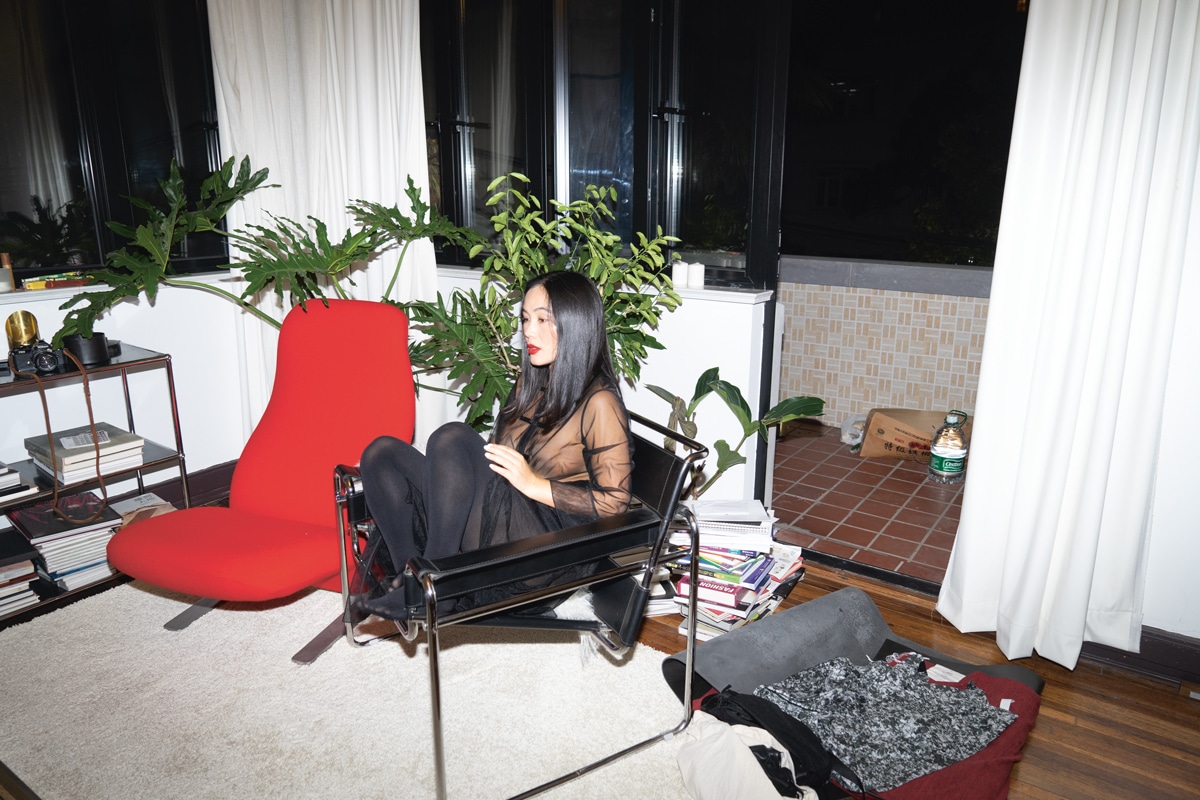
Looking back at the two projects, what do you think was the most significant impact on your life when shooting them?
These two projects have accompanied changes throughout my entire life; my life is inseparable from photography. Because I photographed one particular person at that time, it meant I could go to Beijing later, and then I met many interesting people. After that, I had the chance to show my work internationally, and then I worked in Shanghai. I think these two projects led me to many places. I guess I’m not a brave person and don’t have direction in life; I even consider myself shy. But I am very determined to create, and I want to take photos, so I go to many places. Sometimes when I’m taking pictures, I surprise myself.
I don’t think I’m very good at dealing with others or brave enough to strike up a conversation, but because I want to photograph this person, or because I thought it would be exciting and meaningful to photograph them, it makes me braver. Girls actually expresses various emotional problems throughout my own adolescence. It allows me to express my loves and hates, and I saw the project as a release of my own feelings. Everyone has their own emotions; I happen to express mine through art, and at the same time my work resonates with viewers. I feel pretty lucky.
I think you’ve documented tremendous changes in China over the past 10 years, although you don’t have such lofty ideals. What do you think is the most significant difference between your personal and fashion projects?
The fashion industry in China is very active and sensitive; I’d have to say that people within this network are more prone to following trends. If you’ve made a minor achievement in the field of art, someone will immediately contact you to do commercial work. As I mentioned earlier, I moved to Shanghai and started working with fashion photography in 2017. At first I thought I could make some changes to it, but I found it difficult to change the norms of the fashion, art, or film industries in China. Compared with personal projects, fashion photography requires a team of people cooperating. Sometimes the artists are very cooperative, and I’m delighted to shoot, but sometimes it’s not the case. In the past two or three years, I’ve tried many new things to balance the relationship between income and creativity. Recently, I’ve encountered some exciting business partners, such as Neiwai. They respect my ideas, influence more people through the work we do, and see the value of my photos. Soon I’m going to shoot a new series about middle-aged women. At the same time, I like movies a lot and plan to continue studying film.
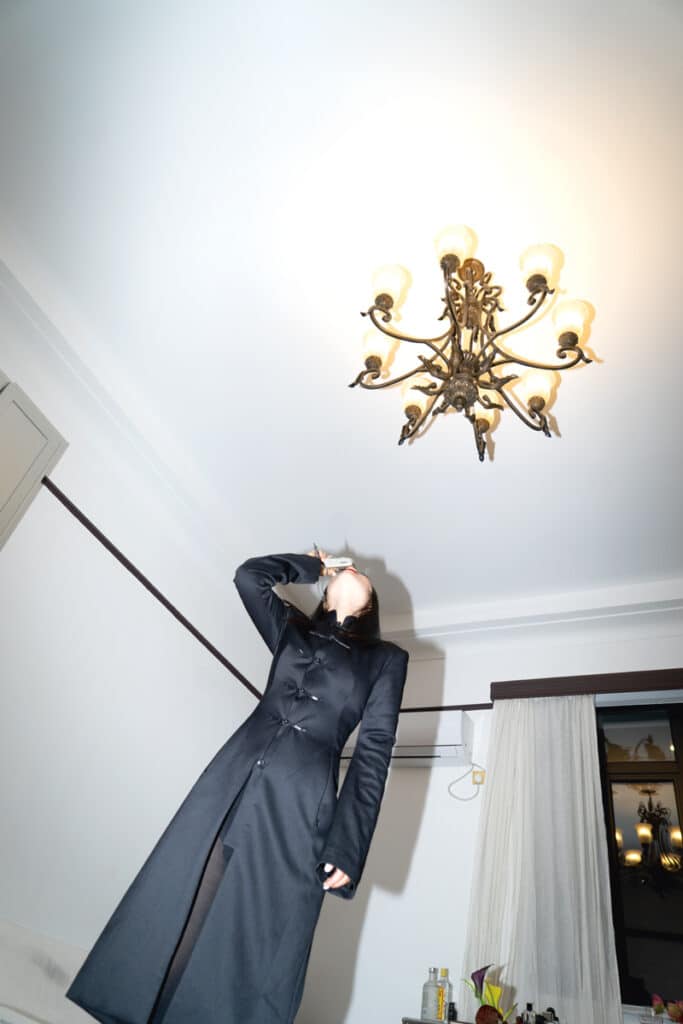
Why film? What was the motivation for you to make this change?
I’ve always liked movies, but I haven’t had much opportunity to learn. Tieling, where I grew up, is a tiny city in Northeast China; there are not many art-related activities. The way I learnt about the outside world when I was a child, or what I liked, was probably influenced by TV and movies. When I was 13 or 14 years old, I watched many foreign movies and interesting HBO shows. I remember I watched Tsai Ming-liang’s Vive L’Amour, and there was a shot of a woman sitting on a chair. This frame is a very long shot, maybe 10 minutes, just a woman sitting on a chair and crying. After a long time, I was shocked. I think life can be the same, and images can be expressed in many ways. Back then, the world of movies transcended my poor daily life.
I was admitted to a class at the Beijing Film Academy two years ago, but I was doing an art residency at the Swatch Art Peace Hotel at the same time and had to give up the opportunity. I’ve also made some videos, but in reality it’s not easy to make a movie. I’m not very good at writing stories either, but I could create a documentary film. I need to set aside time for myself to learn, and I need a change. Learning film is a long-standing desire, but because of various factors, I may or may not have the opportunity to produce the work I want. Still, at least I’ve completed my childhood movie dream and fulfilled my own expectations of myself. I might continue to be an artist and create a few art videos—there are options!
My last question: have you ever wanted to become someone else?
If I could be someone else, I think I would become a man. As a female, I encounter many practical problems in reality, such as having children. I think I’m a very masculine person in my heart. Given that sensitivity, maybe I’ll have problems with romantic relationships or marriage. Above all, I want to be a person who can honestly do what I want to do and become very free at heart.
